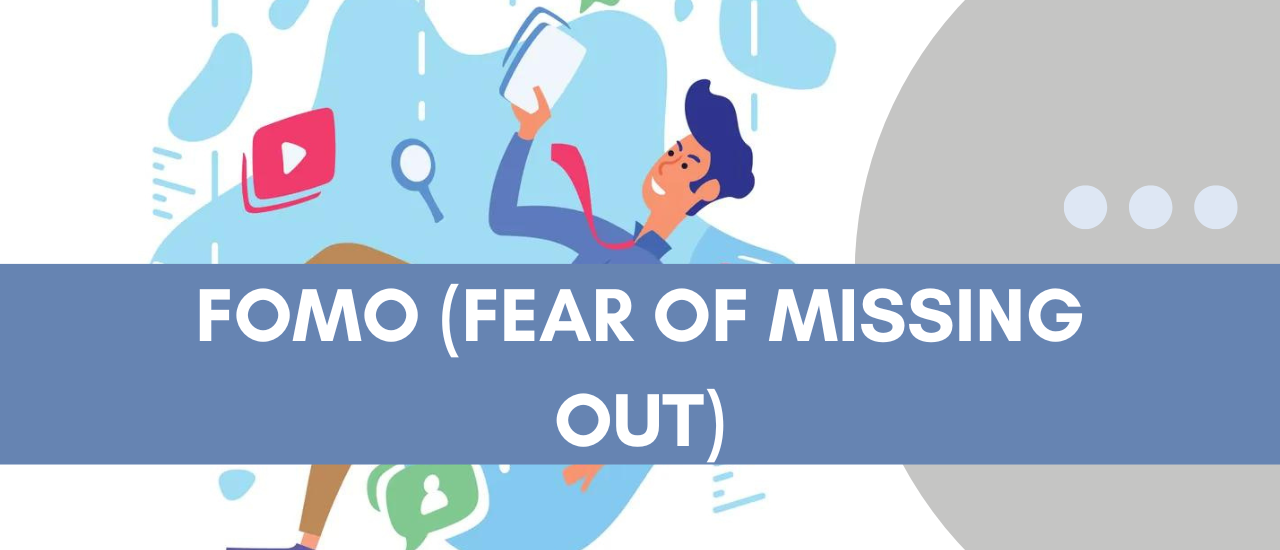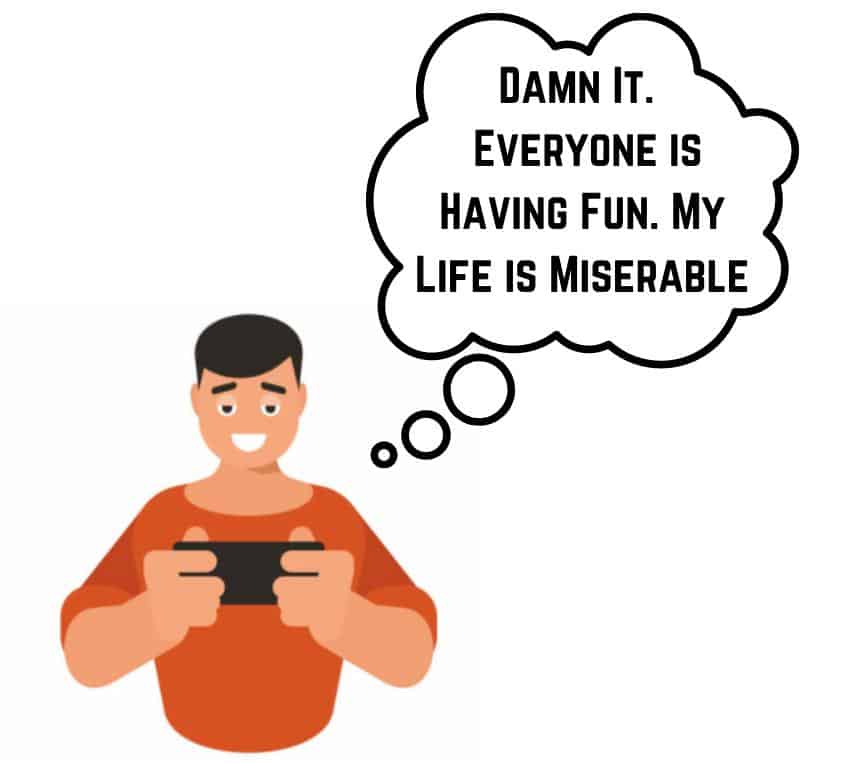


FOMO, or the fear of missing out, is a type of social anxiety (although not a social anxiety disorder). The “fear of missing out,” or FOMO, is a real phenomenon that is becoming more prevalent and may significantly stress your life out. The emotion or perception that others are having more fun, leading better lives, or having better experiences than you are is referred to as the fear of missing out. It lowers self-esteem and involves a strong sensation of envy. Social media provides a stage for boasting; there, objects, occasions, and occasionally even happiness itself seem to be up for competition. People are contrasting their most idealized experiences, which could make you feel deficient.

Most common signs of fear of missing out that may indicate whether you are showing signs of extreme FOMO
FOMO may be caused by an underlying craving for social connection and belonging. Humans have a built-in need for social interaction and a desire to be a part of something bigger than themselves. People may experience mental distress as well as bodily discomfort when they feel they lack these kinds of relationships. This might have an impact on some people’s general health and functionality.
People fear of missing out on joining the in-group because they want to belong and feel like a part of it. People that play video games do so because they do not want to feel left out of the group, which leads to a video game addiction. People who associate their social identities with the video game they are playing worry that not playing enough would cause them to lose their place in the group they are playing with. This worry results from the worry that they will miss out on becoming an active member of the community. FOMO is also used to refer to the comparable worry that comes from missing out on the chance to acquire in-game things or finish tasks that are only available in video games.
Young people and adolescents may be especially vulnerable to FOMO’s impacts. Social media can cause people to compare themselves to others and develop a strong desire to experience everything their friends are. According to research, FOMO may contribute to teen depression in some cases.
Anxiety: The body and mind’s response to stressful, hazardous, or strange events is anxiety. It’s the unease, anxiety, or fear you experience before a big event. A certain amount of anxiety keeps us awake and vigilant, but for people with anxiety disorders, it feels out of the ordinary and can even be fatal.
Depression: It’s critical to understand that experiencing sadness occasionally is a natural aspect of life. Everyone experiences sad and disturbing things in life. But if you frequently feel depressed or hopeless, you may be suffering from depression. A psychiatric disease called major depressive disorder (MDD), usually referred to as depression, and is defined by a persistently depressed mood for at least two weeks.
Low Self-esteem: Low self-esteem is the absence of high regard for oneself. You might experience shyness or anxiety around other people, believe that you are incompetent, or harshly judge yourself if you have poor self-esteem. While some persons with poor self-esteem are aware that they judge themselves too harshly, others cling to their unfavorable opinions so tenaciously that they can appear to be true. Many people struggle with low self-esteem, which can increase your risk of developing other mental health issues.
Rude Behaviors: Being disrespectful, acting impolitely, flouting social conventions, or flagrantly disobeying societal norms and standards are all examples of being rude. Rude behavior can also be used to exert dominance over others and elicit a response. Additionally, it might be a response to tension, friction, and pressure.
Excessive Expectation: One of the indications of FOMO is those who worry about what other people might think. In no particular order, the traits that people most frequently worry about what other people think of are as follows:
Your closest connections can be recentered by putting the phone down and spending time with them. When you need a reminder that you are deserving of love and acceptance regardless of what other people do, your friends and family are frequently the greatest people to turn to.
Yoga and meditation are two mindfulness techniques that can be very helpful for cultivating calm and staying in the present. Quieting your mind and paying attention to your breathing will help you become more aware of the possibility that whatever is generating your FOMO may not be worth your time or effort.
We need to be selective about the things we can accept, and we need to accept that we can’t accept everything. Tell the person who invited you that while your schedule won’t allow it this time, they’re a priority next time if you’re worried that you won’t be invited to events in the future.
Social media provides a fantasy world, so when you’re not using it, seeing people publish these figuratively great posts can seem like a punch in the gut. There is another very easy solution, aside from acknowledging that the posts may not accurately portray how the event is going, and that is to stay away from social media.
Schedule an activity that you know will be enjoyable for everyone who will be there (for example, if you all adore winter sports, plan a ski weekend). Everyone will be content, even you.